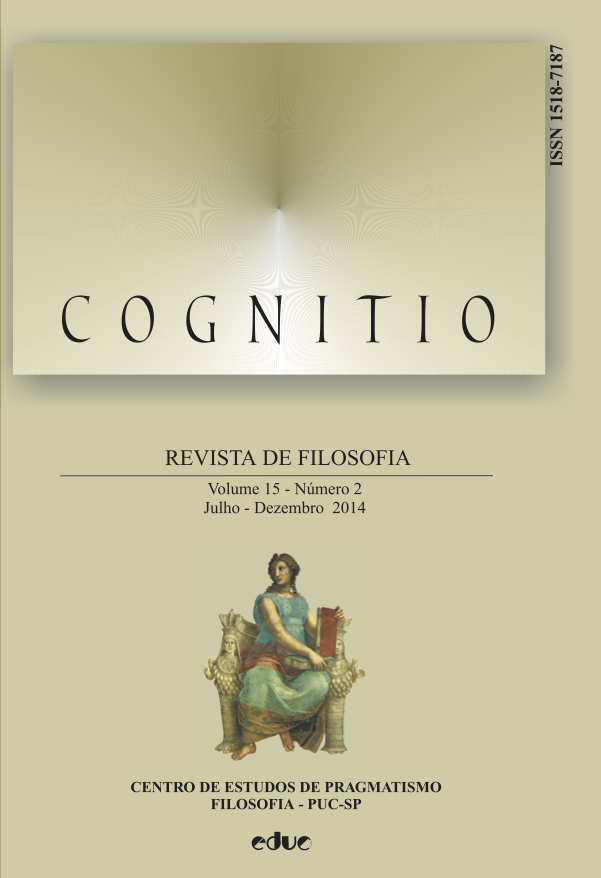Rumo ao cimo prateado: alguns indícios para a evolução da Ética de Peirce
Palavras-chave:
Charles S. Peirce. Ética. Causação final. Ação autocontrolada. Ciência normativa.Resumo
Embora possa parecer uma noção simples e óbvia, a concepção de ética de Peirce possui uma complexidade e riqueza que se desenvolveu ao longo de toda sua vida intelectual. O objetivo deste trabalho é discutir três doutrinas que têm sido fundamentais para o desenvolvimento da ética peirciana. A primeira é a noção de causação final, de que a ética é, sobretudo, uma ciência de propósito, ordenada ao fim último dos seres humanos. A segunda é a noção de ação autocontrolada, na medida em que a ética estuda a ação deliberada, especialmente sob o ponto de vista de sua autocrítica e qualidade refletiva. Finalmente, a terceira é a natureza da ciência normativa, que torna a ética a ciência teórica filosófica da segundidade; e a ciência positiva, com uma base objetiva, que investiga a forma de atingir o autocontrole que conduzirá aos mais elevados e universais ideais.Métricas
Carregando Métricas ...
Downloads
Publicado
2015-04-30
Como Citar
Boero, H. (2015). Rumo ao cimo prateado: alguns indícios para a evolução da Ética de Peirce. Cognitio: Revista De Filosofia, 15(2), 257–274. Recuperado de https://revistas.pucsp.br/index.php/cognitiofilosofia/article/view/23072
Edição
Seção
Artigos Cognitio









